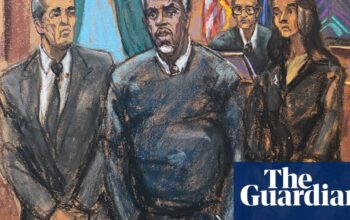
The Pogues released “Boys from the County Hell” in 1984.
In his memoir from 2001, MacGowan expressed frustration with the production of the Pogues’ first album, Red Roses for Me, noting that the energetic sound of their live performances did not translate well in the studio. However, their song Boys from the County Hell strikes a balance between being rough around the edges and tight, with its fast pace, lively tin whistle and accordion, and duel-like banjo atmosphere creating a sense of playful danger. Appropriately, MacGowan also showcases some of his best early lyrics, featuring a tough group of rowdy drinkers who have no qualms about standing up to a bad landlord (or anyone else).
The song “A Pair of Brown Eyes” was released in 1985 by The Pogues.
MacGowan’s finest compositions read like vivid snapshots that shed light on universal human truths. The sorrowful ballad “A Pair of Brown Eyes” tells the story of two strangers who cross paths at a bar and realize they share a painful connection: they are both haunted by an ex-lover with brown eyes. One of the men is a war veteran who found comfort in the thought of his former partner’s brown eyes while serving, only to return home and discover that their relationship had ended. This revelation plunges him into a state of remorse and despair, mirroring the other man’s sorrow over his own lost love with brown eyes. MacGowan’s unflinching imagery (the veteran notes how “the arms and legs of other men / were scattered all around”) adds a poignant layer to this tale of longing.
The song “Dirty Old Town” was released in 1985 by The Pogues.
By putting a righteous modern spin on traditional and Irish folk music tunes, the Pogues ensured these songs remained relevant to younger generations. On Rum Sodomy & the Lash, MacGowan and co did quintessential versions of both And the Band Played Waltzing Matilda and Dirty Old Town. Written by folk icon Ewan MacColl, the latter is an anti-capitalism anthem hidden in a celebratory romantic ballad: the lyrics describe finding love in a hopeless place – a polluted, industry-heavy landscape that the narrator then wants to destroy. MacGowan is the perfect hero of the Pogues’ cover, as his rough-hewn vocals possess the requisite tenderness and moral integrity.
The Pogues – Sally MacLennane (1985)
A notable aspect of Rum Sodomy & the Lash, Sally MacLennane is a lively march reminiscent of a wild night out. In his lyrics, MacGowan captures the sentimental atmosphere of a local pub while also touching on themes of death and the afterlife. The poignant lines “We walked him to the station in the rain / We kissed him as we put him on the train” could be interpreted as a funeral scene. Sally MacLennane is based on the regulars of a real pub owned by MacGowan’s uncle, which was frequented by Irish workers from the Dagenham Ford plant. (The mention of the “elephant man” is based on a real person, according to MacGowan.) The song tells the story of Jimmy, a restless harmonica player who leaves his hometown to seek his fortune and returns years later, only to meet an untimely end while mourning the loss of his friends who passed away during his absence.
The band The Pogues released the song “A Rainy Night in Soho” in 1986.
Taken from the album Poguetry in Motion, released in 1986, A Rainy Night in Soho showcases MacGowan in a contemplative state. The addition of sparkling strings, elegant piano, and refined flugelhorn creates an air of sophistication that perfectly complements the song’s topic. Depending on one’s perspective, A Rainy Night in Soho can be seen as a tribute to a long-standing love who offers both emotional and physical comfort, or as an extended metaphor for how alcohol can serve as a tempting crutch. Regardless of interpretation, it remains one of the Pogues’ most stunning pieces, filled with vivid imagery and wistful nostalgia: “On a rainy night in Soho / The wind was whistling all its charms.”
The song “Fairytale of New York” by The Pogues featuring Kirsty MacColl was released in 1987.
The holiday classic, Fairytale of New York, co-written by MacGowan and Jem Finer, tells the story of two individuals in a New York City drunk tank who are navigating their toxic relationship. Despite their regrets and differences in lifestyle, they find solace in the bells ringing on Christmas Day, a reminder that even in the darkest moments, there is hope. The song features delicate musical elements such as accordion, piano, tin whistle, and strings, emphasizing the subtle beauty within its lyrics.
The song “The Irish Rover” was released in 1987 by The Pogues and The Dubliners.
The collaboration between Irish folk legends the Dubliners and the Pogues on a lively 1987 cover of the beloved song “The Irish Rover” was not exactly a passing of the torch. Despite the Dubliners’ strong performance on the track, which made it to the UK Top 10 and reached the top of Ireland’s singles chart, MacGowan’s energetic vocals added a fierce punk element to the tune.
The Pogues released their album “If I Should Fall from Grace With God” in 1988.
Driven by fast-paced drums, agile banjo and lively accordion, the main song of the Pogues’ 1988 record almost captures the intense punk energy of the band’s live performance. MacGowan takes the lead, occasionally letting out a primal scream amidst his brash vocal style. In terms of lyrics, If I Should Fall from Grace With God portrays someone struggling to come to terms with the gravity of their mistakes in the afterlife – only to realize that redemption (and salvation) may not come easily, if at all.
The song “That Woman’s Got Me Drinking” was released in 1994 by Shane MacGowan and the Popes.
After leaving the Pogues in the early 1990s, MacGowan started a new band called Shane MacGowan and the Popes. As expected from the name, the group followed a similar rebellious path as MacGowan’s previous band. Their first album, The Snake, included the song “That Woman’s Got Me Drinking,” a lively blend of blues and punk that tells the story of a troubled relationship where the narrator turns to alcohol as a coping mechanism. Despite their struggles, the narrator is determined to stay with their partner: “If I had the courage to do it / I’d say goodbye for good / But instead I’ll love her fiercely / And love her until I die.” While excessive drinking may not be the healthiest way to deal with problems, the song’s conflicted emotions show good intentions.
In 1994, Shane MacGowan and the Popes collaborated with Sinéad O’Connor on the song “Haunted”.
A melancholic version of a track first performed by the Pogues in 1986 for the Sid and Nancy movie soundtrack, the collaboration now holds even more significance as both MacGowan and O’Connor have passed away. The singers both convey a sense of fragility as they express their eternal love (“I want to be haunted by the memory / Of your priceless love”), with O’Connor’s delicate and vulnerable tone providing a beautiful contrast to MacGowan’s rough exterior and soft-hearted nature.
Source: theguardian.com


